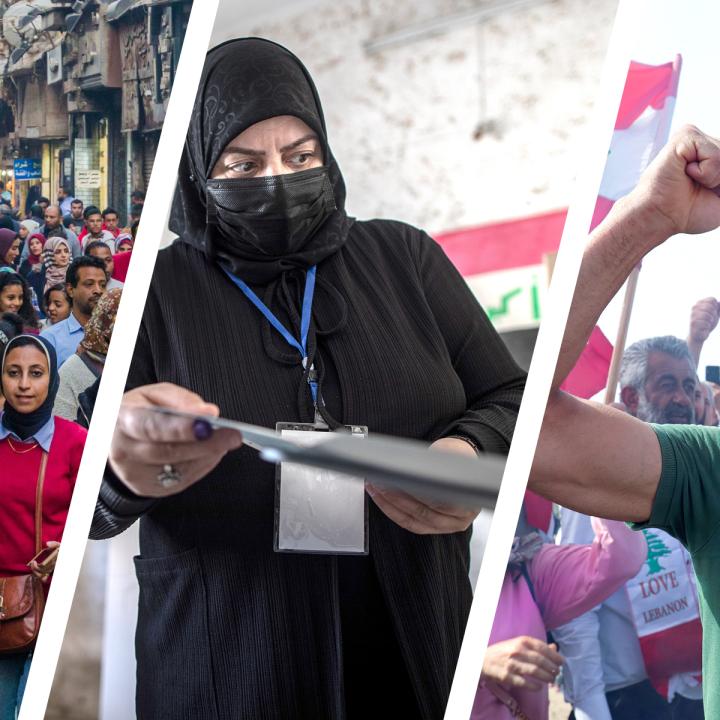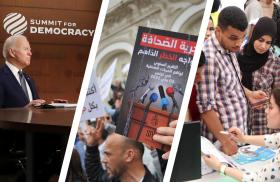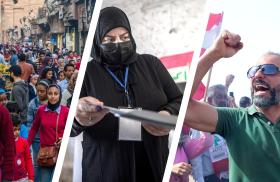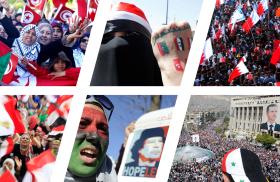
- Policy Analysis
- Policy Notes 125
Beyond Elections: Evolving Arab Public Opinion on Democracy and Human Rights

Part of a series: Reform, Protest, Change
or see Part 1: A New Start for the U.S. on Mideast Democracy and Human Rights
U.S. efforts in the region stand a better chance of success if they consider rising demand for accountable governance, skepticism about democratic institutions, and various nation-specific trends.
Against the backdrop of simmering protests, endemic economic challenges, the continuing struggle to contain the Covid-19 pandemic, and fallout from the U.S. withdrawal from Afghanistan, The Washington Institute launched a series of policy papers to help guide the Biden administration’s approach on democracy, reform, human rights, and political change across the Middle East and North Africa.
The series addresses a range of questions: How do changes in the region over the last decade affect the new administration’s approach to these issues? How should the administration best prepare for the “new normal” of protests in the region? What are the policy tools at America’s disposal, and how might they be improved upon? How can Washington turn much-needed attention to new areas of focus, such as corruption and public-sector reform? What does public opinion research tell us about what the region’s publics want in their countries—and from the United States? And where might enhanced U.S.-EU coordination play a constructive role? The proposed answers will assist policymakers in advancing opportunities for reform, preserving U.S. interests, and navigating Middle East realities in the context of America’s global priorities.
In the fourth essay in the series—covering public opinion on democracy and human rights in Arab states—Catherine Cleveland and David Pollock note a cooling toward democratic institutions, a trend undoubtedly driven by failures in Tunisia, Lebanon, and Iraq. They discuss corresponding distrust in legislative bodies and high frustration with corrupt governance. Islamist leaders, they observe, come in for increasingly sharp critique. All in all, the findings emphasize a strong public demand for better governance outcomes and, in turn, the benefits as well as limits of U.S. democracy and human rights promotion in the region.








